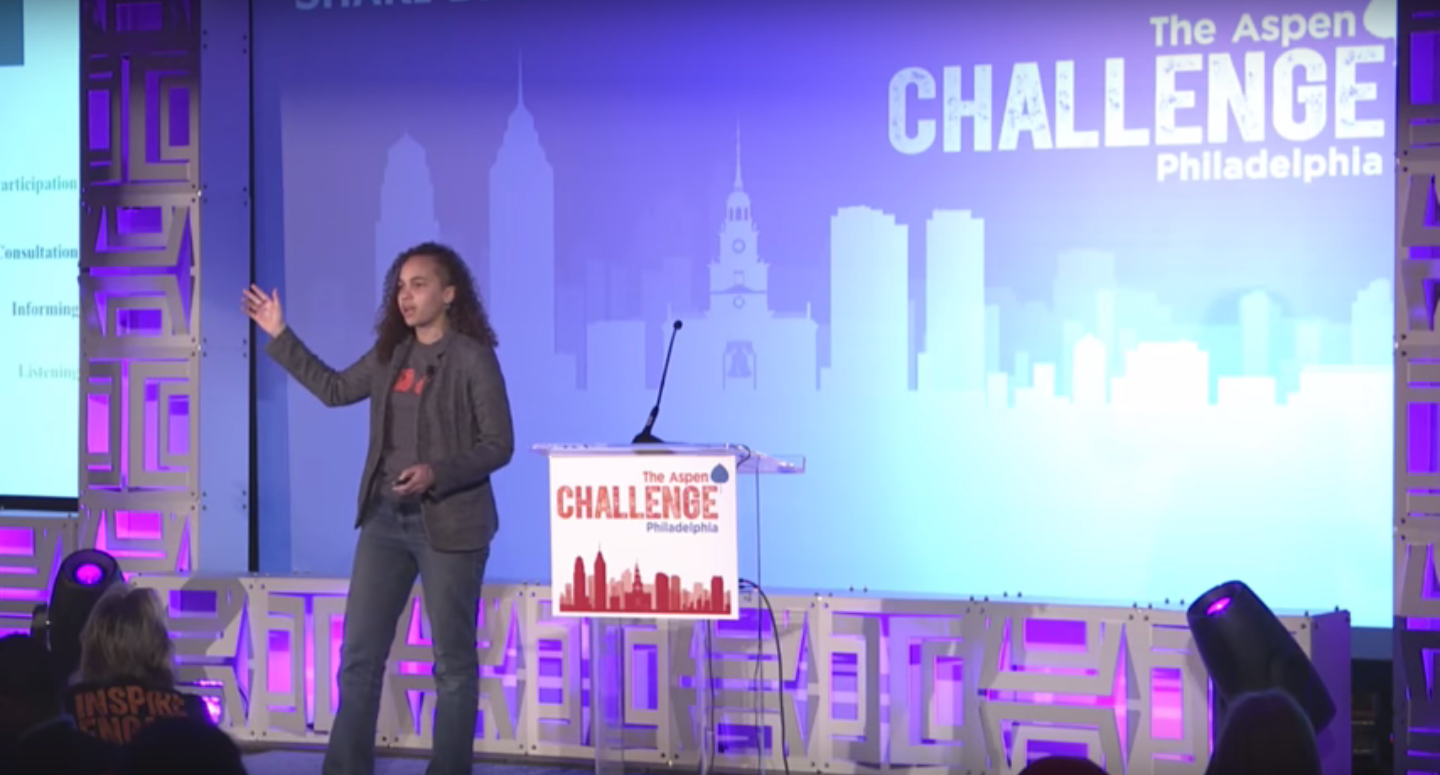I challenge you to break junk food cycles by empowering yourself, your peers, and your family to understand, cook, and eat real food.
This was the challenge I offered hundreds of Chicago high school students during the 2017 Aspen Challenge. I was fortunate to spend a day with this rousing group of young adults who were so engaged and demonstrated an acute self-awareness of the challenges placed in front of them. They asked insightful, important, and pointed questions. I was inspired by what I saw and experienced, and I left with a confidence that these young adults have the determination and creativity to meaningfully rise to the challenges placed before them.
When young people are challenged to empower themselves, peers, and family to break junk food cycles by understanding, cooking, and eating real food, it can be met with cynicism — ‘not another lecture on nutrition.’ They already understand that junk food — industrial food — is generally bad for them. But they aren’t always sure why.
Real food is food we trust to nourish ourselves, our farmers, and our community. Understanding real food is knowing you can trust the food. If you don’t understand where food comes from and what is in it, you can’t trust it. If there is a long list of ingredients that you can’t spell or don’t know what they are, you can’t trust it. Understanding this is the first step to making educated choices around what you eat.
This challenge is a personal one, but the impact can be huge. By breaking junk food cycles, even in a moderate way, young adults can drive the demand and supply of real food. It’s simple economics; buy more junk food, junk food manufacturers will happily supply more. Buy more real food, farmers will happily grow more. The challenge is to begin the shift from junk food to real food.
Like any challenge, there are inherent problems to overcome. To cook and eat real food means you have to be able to find it. Growing your own food is one option, but that’s not readily accessible or affordable in food deserts where many of these Chicago high school students live. There are many people and organizations working on this issue with some success, but these young adults have the best firsthand perspective. They deserve better – and they know it.
To take on this challenge, they must also think beyond the challenge. The $5 trillion food industry dwarfs the $30 billion software industry. Food is poised for massive disruption and change within our lifetime. Kimbal Musk, co-founder of The Kitchen, believes that “food is the new internet.” For young adults at the beginning of their careers, the possibilities and opportunities in food are endless.
I was happy to learn that six of the 20 high school groups selected the real food challenge. They are now working hard to design a solution for breaking junk food within their personal circles of friends and family by understanding, cooking, and eating real food. On April 6, they present their solution; I can hardly wait.
Joan Haug is chief of staff to Kimbal Musk, co-founder of The Kitchen. The Kitchen Community is committed to connecting and educating kids about real food.


